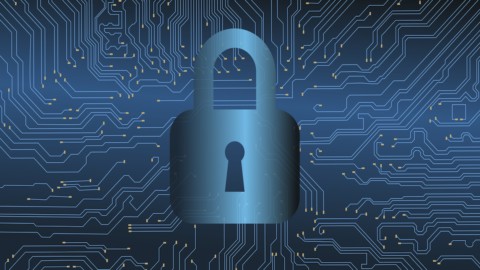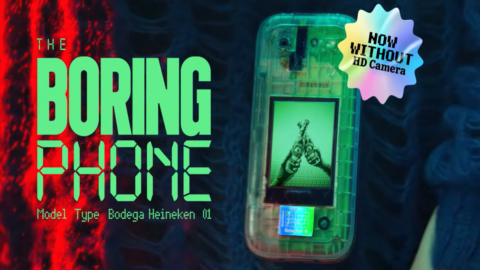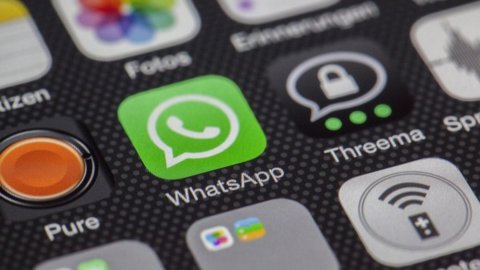Digital and childhood, a commitment made by the Golinelli Foundation and Yoox Net-a-porter Group (Ynap). And now that the week is over, the first balance sheets can be drawn. From 9 to 13 October the Digital Week, promoted by the two partners, was a week of free activities dedicated to kindergartens, primary and secondary schools on the subject of digital technology. From robotics to visual coding, from Lego to Cubetto (a wooden toy with attractive colored geometric shapes), from cryptography to computer programming, from virtual reality to design: there are many educational workshops through which children and teenagers have explored the digital world. More than 1000 students were involved, coming from 46 classes of Emilia-Romagna schools of all levels, who took part in 10 free activities, thanks to the contribution and unique and specific know-how of Yoox Net-a-porter group.
The initiative, which took place at Opificio Golinelli on the occasion of Europe Code Week 2017 (codeweek.eu), is part of the collaboration that the Golinelli Foundation and Ynap have started to make schools aware of the opportunities that digital technology offers. Most of the proposed activities, conceived for the occasion and therefore unpublished in the panorama of teaching and training courses for digital technologies, were developed and conducted by Yoox Net-a-porter to encourage the development of digital skills, spread basic technical knowledge, understand coding processes and stimulate computational thinking in order to train future digital talents.
The activities organized during the Code Week are part of a program of interactive computer programming activities, promoted thanks to the partnership that has long seen the Golinelli Foundation and YOOX NET-A-PORTER GROUP engaged in digital education and which will see them also collaborate on the occasion of other international events such as L'Ora del Codice, which will take place in early December.
Since its inception, the Golinealli Foundation has been involved in an integrated way of education, training and culture to promote the intellectual and ethical growth of young people and society and with the aim of contributing to the sustainable development of our country. Education is one of the priorities of Ynap's Sustainability programme. Over its 17-year history, YNAP has internally trained thousands of young talents in the digital field and for some time it has been committed, thanks also to the collaboration with the Golinelli Foundation and other institutions, in investing in digital education, both in Italy and abroad.
Here are the educational activities carried out:
Future Gate
For whom: II cycle primary school and I degree secondary school. Duration: 2h
How to see and interact with the world from a new window. We will be able to introduce kids to programming using Robotics and Visual Coding to solve practical problems. Thanks to virtual reality we will be able to explore distant worlds and travel through time and space.
User Experience (UX) Design
For whom: Secondary school. Duration: 2h
A laboratory to understand the importance of User Experience and immerse yourself in the most common design methodologies, from competitive benchmarks to user activity flows, from customer journeys to user tests. After a brief overview of how the Yoox User Experience team applies these tools to business projects, the students will be engaged in a Design workshop.
Agile fundamentals
For whom: Second grade secondary school. Duration: 2h
Using Lego Games, we will understand how YNAP works as a team to face and overcome digital challenges, achieve customer satisfaction by reducing product development costs and times. We will see how it is possible to make collective decisions and how to adapt to changes.
Science in your hands Makey Makey
For whom: Kindergartens from 5 years and class I of Primary School. Duration: 1h15'
MakeyMakey is a kit that transforms any object capable of conducting electricity into a computer keyboard. A laboratory between music, games and didactics where fruit, vegetables, modeling clay, even our body, can become alternative musical instruments or interactive keyboards.
Cubic robotics
For whom: Kindergartens from 4 years and class I of Primary School. Duration: 1h15'
Cubetto, apparently just a wooden toy with attractive colored geometric shapes, is actually a valuable tool through which children can learn the basics of programming and computational thinking even before they know how to read or write. During the laboratory, the knowledge of space, geometry and intuition are stimulated. Little students use shapes and colors to solve problems and achieve set goals.
junior robotics
For whom: Primary School I cycle. Duration: 2h
Educational robotics offers numerous educational and methodological ideas and is increasingly establishing itself in educational institutions as a transversal subject. Starting with the use of the smart toys Bluebot and Cubetto, the prerogatives of a robot and how to interact are described, and then proceed with programming challenges.
Cryptograms: the mathematics of secret codes
For whom: Primary and lower secondary schools. Duration: 1h30'
The science behind the creation of secret codes is called cryptography, and it is an increasingly felt theme in the field of communications, especially digital ones. In this laboratory you learn the logic of secret codes, trying to interpret them, modify them and create new ones. Furthermore, behind every secret code there is a logical-mathematical process, called an algorithm, which is, in reality, the key necessary to interpret it.
coding
For whom: Primary and lower secondary schools. Duration: 2h
Through Scratch, a block visual programming language developed by MIT in Boston, students have the opportunity to experiment with the basics of computer programming in a creative and playful way, learning and immediately implementing complex concepts such as functions, variables, cycles and all how much it is possible to develop with the usual programming languages.
Coding with Makey Makey
For whom: II cycle Primary School and I degree Secondary School. Duration: 2h
The activity involves the use of Scratch in association with Makey Makey, an electronic kit capable of transforming any conductive object (fruit, DIDÒ, metals and even people) into an interface, in order to develop a videogame and also an original controller with which to play.
Digital Art: drawing and playing with algorithms
For whom: II cycle Primary School and I degree Secondary School. Duration: 2h
What distinguishes a handcrafted artistic product from one made with a computer? Can they both be called works of art? In this computer programming activity students have the opportunity to produce complex lines and shapes such as fractals and even create electronic musical loops.



